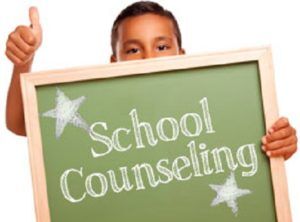School Counseling
A school counselor, also commonly known as a guidance counselor, is a counselor and an educator who works in  primary schools and/or secondary schools to provide academic, career, college readiness, and personal/social competencies to all students through a school counseling program.
primary schools and/or secondary schools to provide academic, career, college readiness, and personal/social competencies to all students through a school counseling program.
Career counseling and education are conducted with a wide variety of individuals in diverse settings. Brown (1985) observes that career counseling typically is offered in college counseling centers, rehabilitation facilities, employment offices, and public schools. He thinks it could be applied with great advantage in many other places as well, including mental health centers and private-practice offices. Because the concept of careers encompasses the entire life span, counselors who specialized in this area find themselves working with a full age range of clients, from young children to octogenarians.
Herr and Cramer (1992) cite numerous studies to show that during the first six years of school, many children develop a relatively stable self-perception and make a tentative commitment to a vocation. Jesser (1983) indicates that this awareness can be raised through activities such as field trips to local industries, bakeries manufacturing plants, or banks. Cole (1982) stresses that in the middle and junior high school, career guidance activities should include the exploration of work opportunities and students’ evaluation of their own strengths and weaknesses in regard to possible future careers. Several techniques have proven quite effective in helping adolescents crystallize ideas about careers. Some involve the use of fantasies, such as imagining a typical day in the future, an awards ceremony, a mid-career change, or retirement. More concrete exercises might include completing an occupational family tree to find out how present interests compare with the careers of family members. American Counseling Association (ACA), call for a 48 hour Master’s program that includes extensive practice and internships, along with the major content areas like professional orientation, helping relationships, counseling theories, human development theory, social and cultural foundations, group counseling, career and lifestyle counseling, appraisal, research and evaluation, school counseling, and consultation.
Types of Program Interventions
-
Direct Services
The basic purposes of counseling interventions in the school are to: Promote students’ personal and social growth. To enhance their educational and career development. Issues appropriate for school counseling include attitudes and behaviors, peer relationships, study .skills, career planning, college selection, sexuality concerns, substance abuse, and family issues such as abuse, divorce, death of family member, and blended families. Counseling related to educational and career planning may often involve the administration of assessment instruments and subsequent test interpretation.
-
Indirect Services
Consultation interventions include working with consulters (teachers, staff, and parents) to help the consulters improve their interactions with children. Counselors in the consultant, role may use individual conferences, seminars, or training workshops to teach specific skills are to focus on strategies for dealing with a specific problem. Coordination refers to the process in which the counselor helps organize and manage the comprehensive counseling program and related services.
University Counseling
Herr and Cramer (1992) list a number of services that a comprehensive career guidance and counseling program in an institution of higher education attempts to provide. Among them the important ones are:
- Help with the selection of a major field of study
- Offer self-assessment and self-analysis through psychological testing
- Help students understand the world of work
- Teaching decision making skills
- Facilitate access to employment opportunities through career fairs
- Meet the needs of special populations.
In the past, campus counseling may have tended to be a rather narrow specialty, with counselors working primarily with 18- to 22-year-olds who often had similar religious and ethnic backgrounds. More recently, however, there has been increased diversity on most college campuses, especially in multicultural societies. There is increased age, ethnic and racial diversity and greater numbers of students with disabilities. Campus counseling centers in higher education, particularly in areas with large ethnic mix, are expected to offer the full range of services.